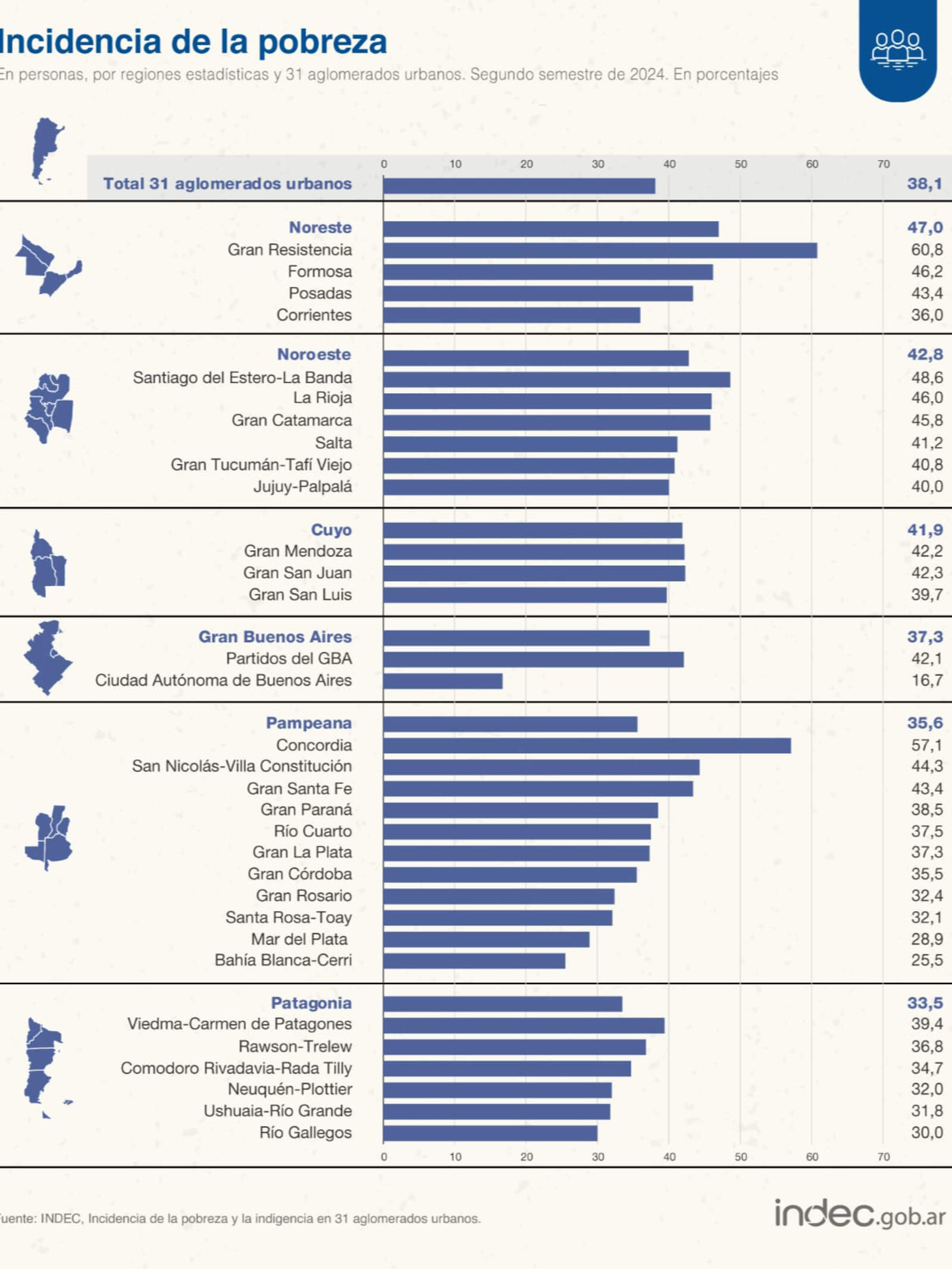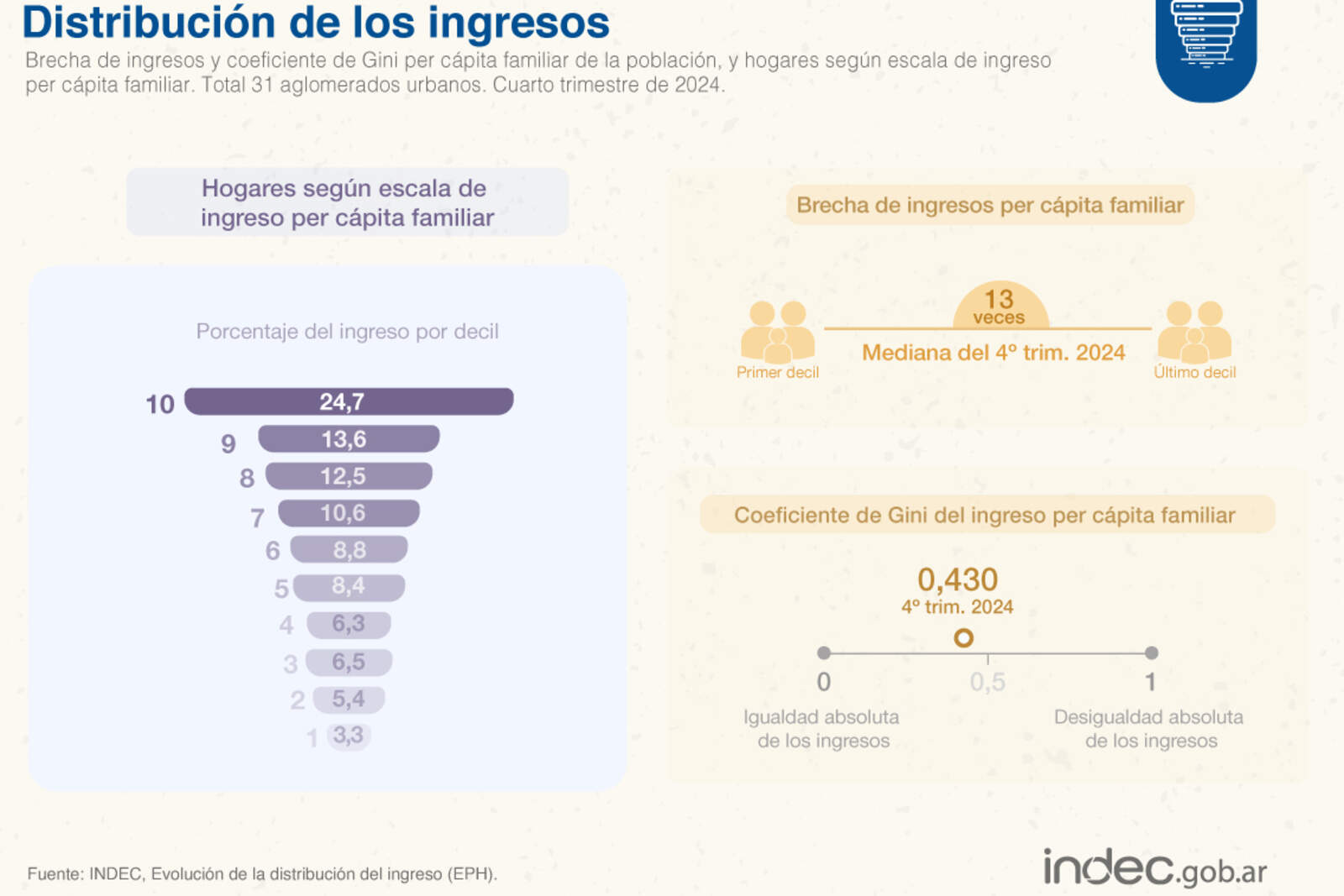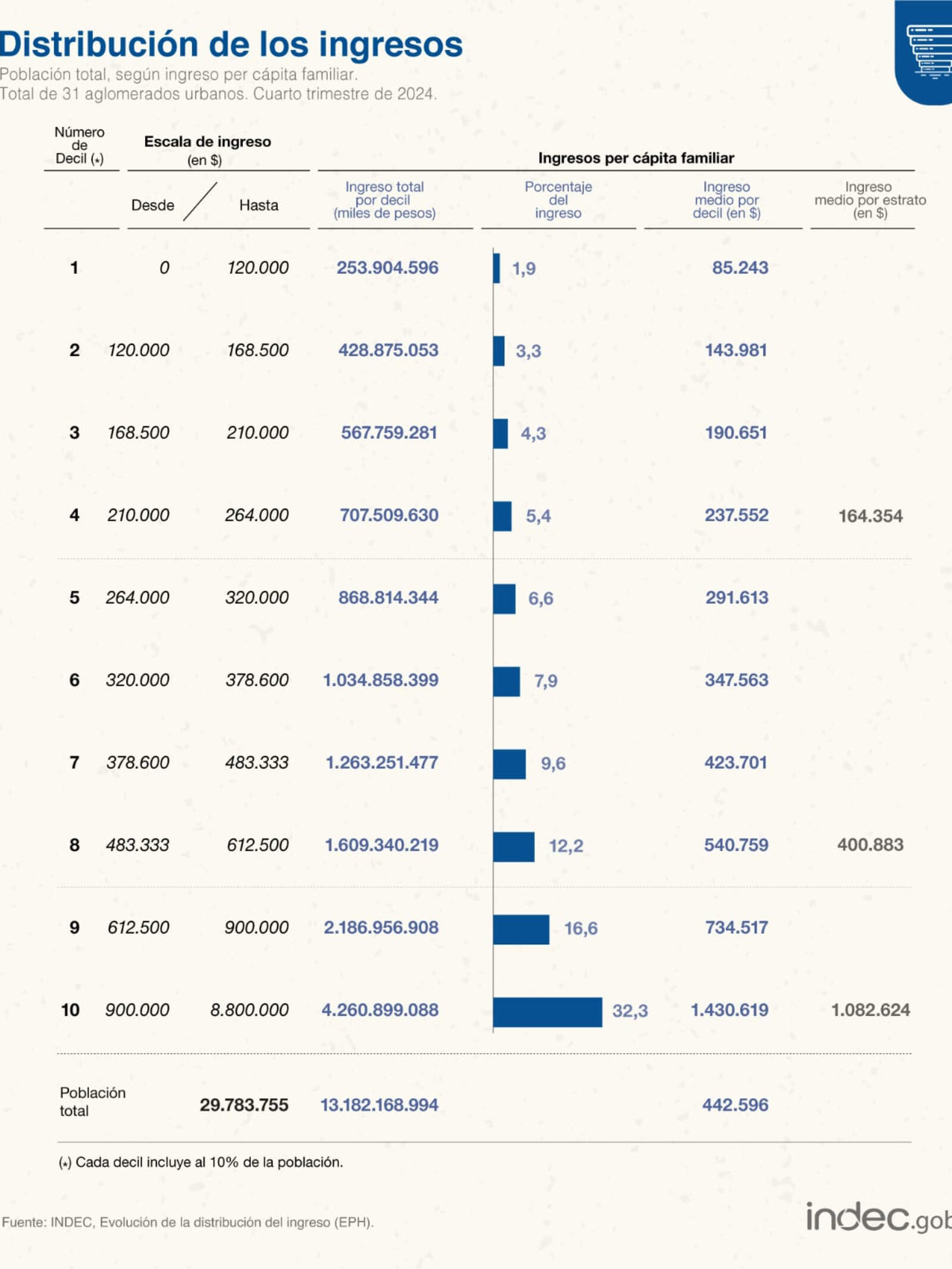Socialism was mistaken in repeating for decades that only an active State could guarantee the well-being of the population. However, recent data show the opposite:state intervention has been an obstacle to development, and Javier Milei's Argentina is dismantling that myth with resounding results.
Poverty in decline: evidence shows that adjustment and liberalization are the only path to prosperity
Poverty in decline confirms the success of the adjustment and liberalization policies implemented by Milei's government. According to INDEC, the incidence of poverty in the main urban agglomerations fell to 38.1%, marking a decrease compared to inherited levels.
Historically affected regions, such as the Northeast (47%) and Northwest (42.8%), show a significant decrease. In specific cities, such as Posadas (43.4%) and Greater Tucumán-Tafí Viejo (40.8%), indicators improve as the market regains its natural dynamics.

Poverty among the most vulnerable groups, such as those under 17 years old, remains high (52.7%), but the downward trend is undeniable. This change is due to greater economic stability and the elimination of interventionist policies that hindered growth.
Salaries regain value: monetary stability restores purchasing power without arbitrary controls or welfare programs
Salaries regain value thanks to monetary stability, which allows workers' purchasing power to recover. Inflation, which under statist administrations destroyed incomes month after month, has slowed dramatically, allowing real wages to grow.










